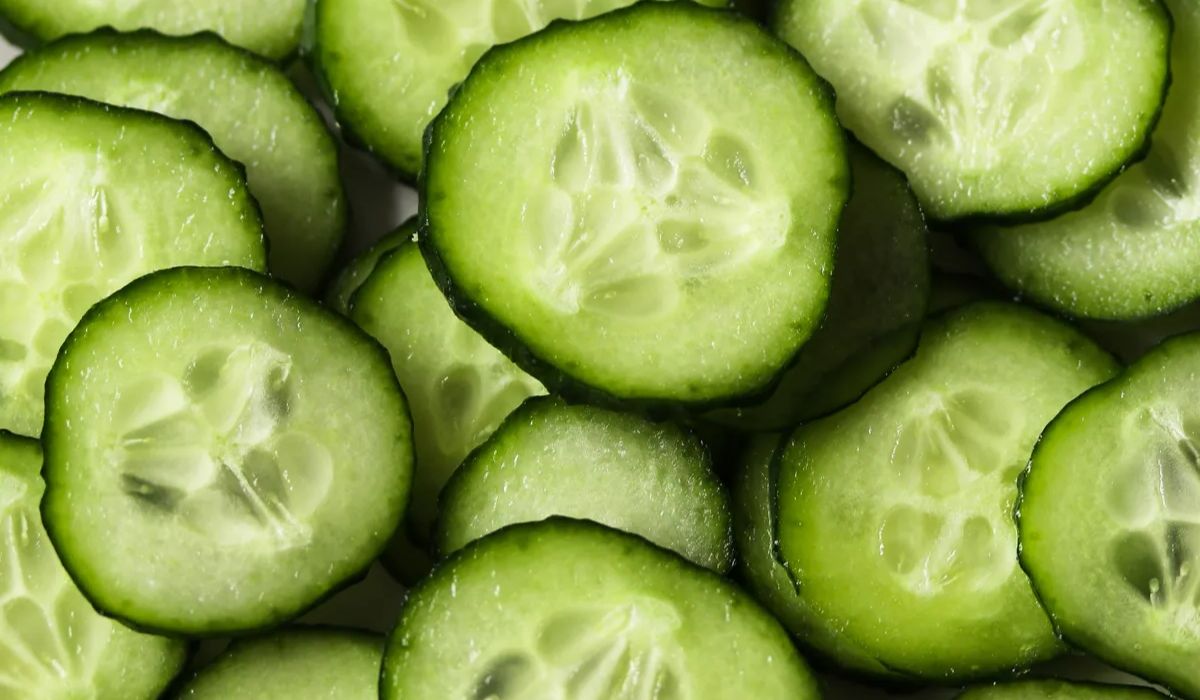
Ever wondered about the humble cucumber's secrets? Well, you're in for a treat! Cucumbers, those cool, crisp staples of salads and sandwiches, are more fascinating than you might think. Did you know that cucumbers are not vegetables but fruits? Or that they can fight off your bad breath? Yes, you heard that right! From their surprising classification to their breath-freshening abilities, cucumbers are full of surprises. So, why not peel back the layers of this seemingly simple snack? Get ready to be amazed by these 12 refreshing cucumber facts that you probably didn't know. Trust me, after reading this, you'll never look at cucumbers the same way again!
Key Takeaways:
- Cucumbers are more than just a salad ingredient; they're 95% water, making them a refreshing snack and a natural way to hydrate and cool down on hot days.
- Cucumbers have a rich history, from being one of the first vegetables to be pickled to being used as a natural pesticide in gardens. They're also packed with antioxidants and can help manage blood sugar levels.
Why Cucumbers Are More Than Just a Salad Ingredient
Cucumbers, often seen as a staple in salads, carry a wealth of benefits and interesting tidbits that extend beyond their crunchy texture and refreshing taste. Not just for eating, cucumbers have been used in skincare routines and even as a tool to combat pests in gardens. Let's dive into some fascinating facts about this versatile vegetable.
-
Cucumbers are made up of 95% water, making them an excellent snack for hydration and cooling down on a hot day. This high water content is why they feel so refreshing, whether eaten raw or applied topically on the skin.
-
Despite commonly being treated as a vegetable, cucumbers are technically a fruit. They develop from the flower of the cucumber plant and contain seeds, fitting the botanical definition of a fruit.
Historical Significance of Cucumbers
Cucumbers have a rich history that dates back over 3,000 years. Cultivated first in India, their cultivation spread through ancient civilizations, becoming a valued food source and more.
-
Historical records suggest that cucumbers were one of the first vegetables to be pickled. Ancient Mesopotamians began this practice around 2400 B.C., preserving cucumbers for out-of-season consumption and for long journeys.
-
The Roman Emperor Tiberius had a penchant for cucumbers and demanded they be available year-round. His gardeners employed the use of early greenhouses, called specularia, to grow cucumber crops during off-seasons.
Cucumbers and Health Benefits
Cucumbers are not just water-rich fruits; they're packed with nutrients and compounds that offer various health benefits.
-
Cucumbers contain antioxidants like flavonoids and tannins, which can reduce inflammation and fight free radicals. This makes cucumbers a great addition to a health-conscious diet.
-
Eating cucumbers might help in managing blood sugar levels. Some studies suggest that cucumbers can lower and control blood sugar, making them beneficial for people with diabetes.
Surprising Uses of Cucumbers
Beyond the kitchen, cucumbers have found their place in beauty treatments and even in DIY pest control methods.
-
Placing cucumber slices on the eyes is not just a spa cliché. It can actually reduce swelling and soothe irritated skin due to the ascorbic and caffeic acids cucumbers contain.
-
Gardeners use cucumber slices to deter pests in the garden. The chemical compounds in cucumbers can repel certain insects and garden pests, making them a natural pesticide.
Cucumbers Around the World
Cucumbers have adapted into various cuisines globally, showcasing their versatility in dishes beyond salads.
-
In Japan, cucumbers are considered a cooling food and are often eaten during hot weather to prevent heatstroke. They're also made into a popular dish called sunomono, which is a cucumber salad with vinegar dressing.
-
China is the largest producer of cucumbers, contributing to approximately 76% of the global output. This highlights the vegetable's importance in Chinese cuisine and agriculture.
Fun Facts About Cucumbers
To wrap up our cucumber exploration, here are a couple more tidbits that might surprise you.
-
Cucumbers can be used to clean stainless steel. The natural chemicals in the skin of cucumbers remove tarnish and bring back the shine to metal surfaces.
-
There's a variety of cucumber called "Burpless cucumbers." These are specially bred to reduce the gas caused by other cucumber varieties, making them easier to digest for some people.
A Fresh Slice on Cucumber Facts
Cucumbers are more than just a crunchy addition to salads and a spa-day stereotype. They're a fascinating veggie with a rich history, surprising health benefits, and a versatility that goes beyond the kitchen. From their use in skincare to their role in hydration, cucumbers have proven themselves to be a staple in both culinary and non-culinary worlds. Their ability to grow in various climates and their popularity across different cultures highlight their global appeal. Next time you munch on a cucumber, remember it's not just a refreshing snack but a plant with a story, packed with nutrients, and capable of more than meets the eye. So, let's keep exploring and appreciating these green wonders, for they surely have more secrets to share.
Frequently Asked Questions
Was this page helpful?
Our commitment to delivering trustworthy and engaging content is at the heart of what we do. Each fact on our site is contributed by real users like you, bringing a wealth of diverse insights and information. To ensure the highest standards of accuracy and reliability, our dedicated editors meticulously review each submission. This process guarantees that the facts we share are not only fascinating but also credible. Trust in our commitment to quality and authenticity as you explore and learn with us.


